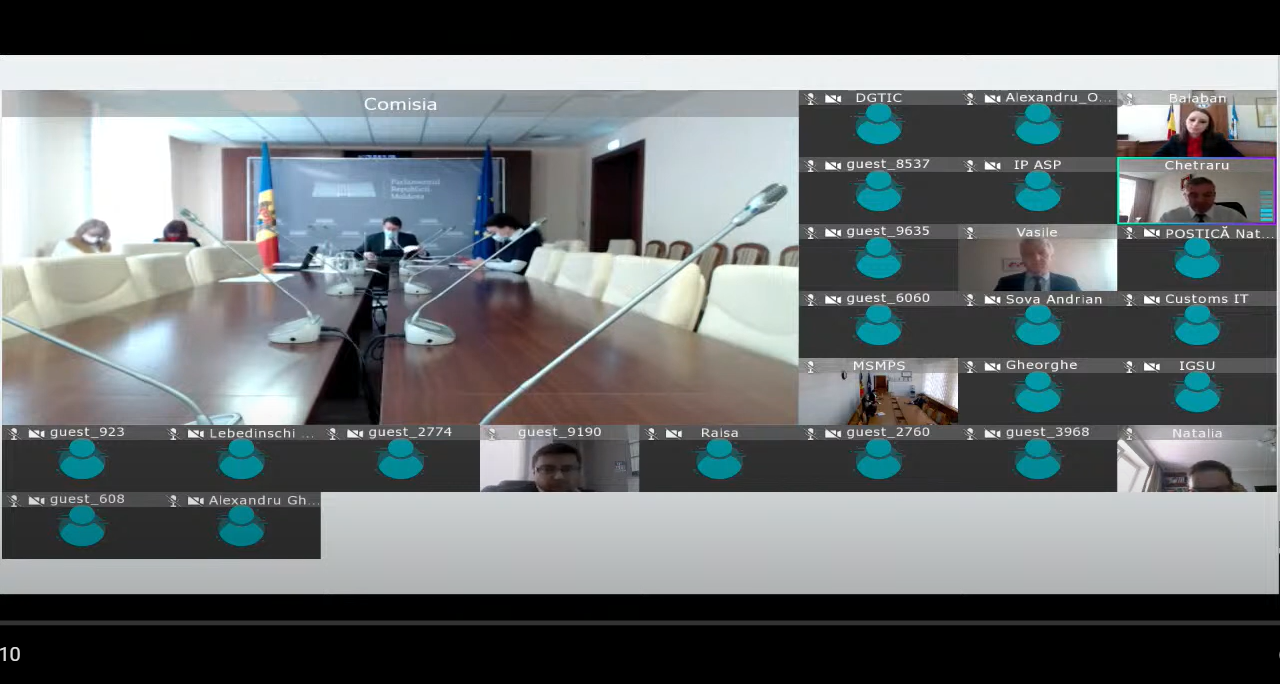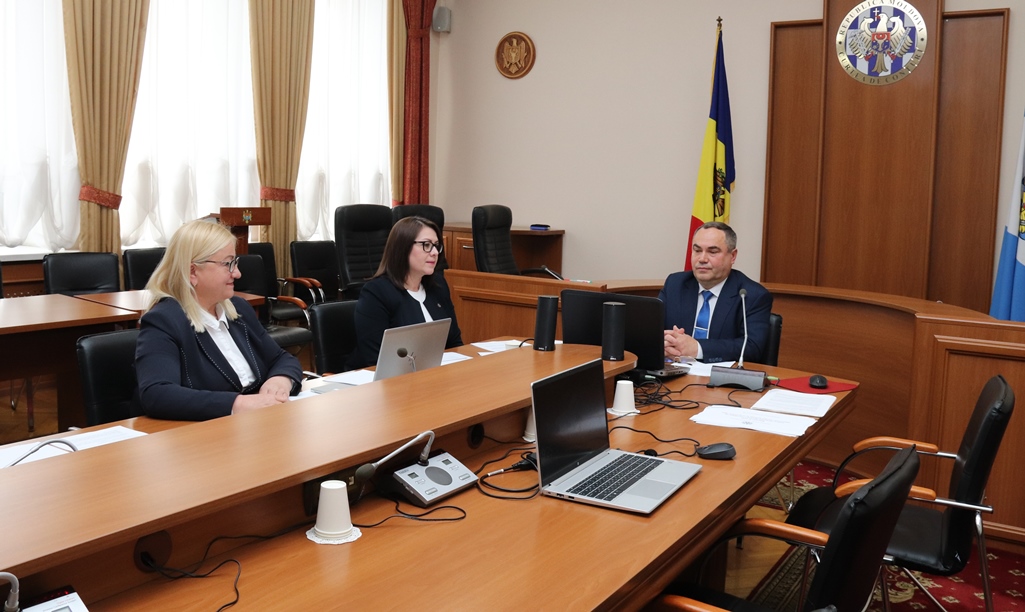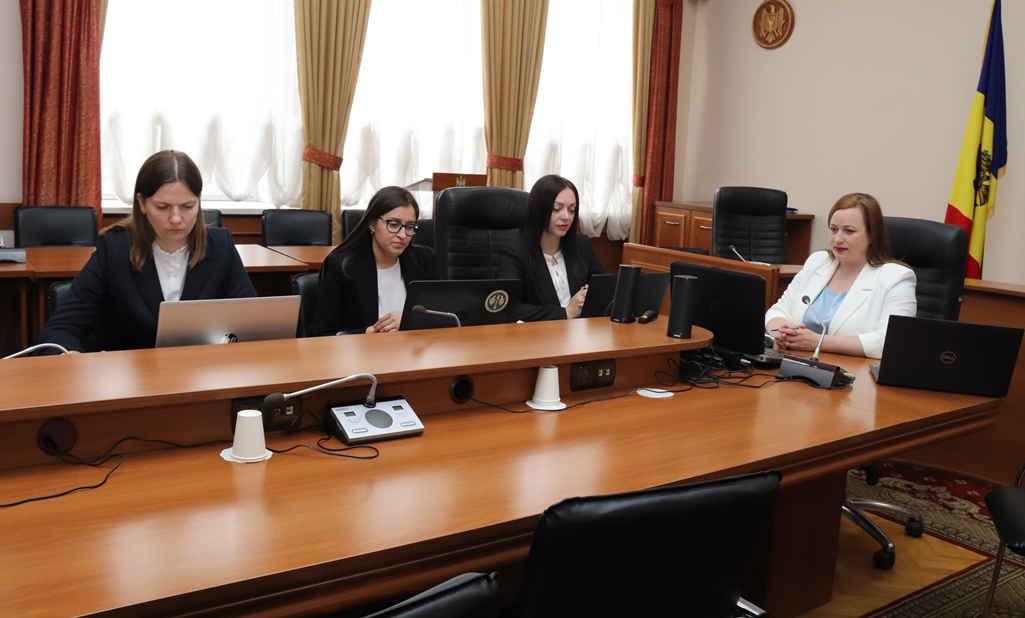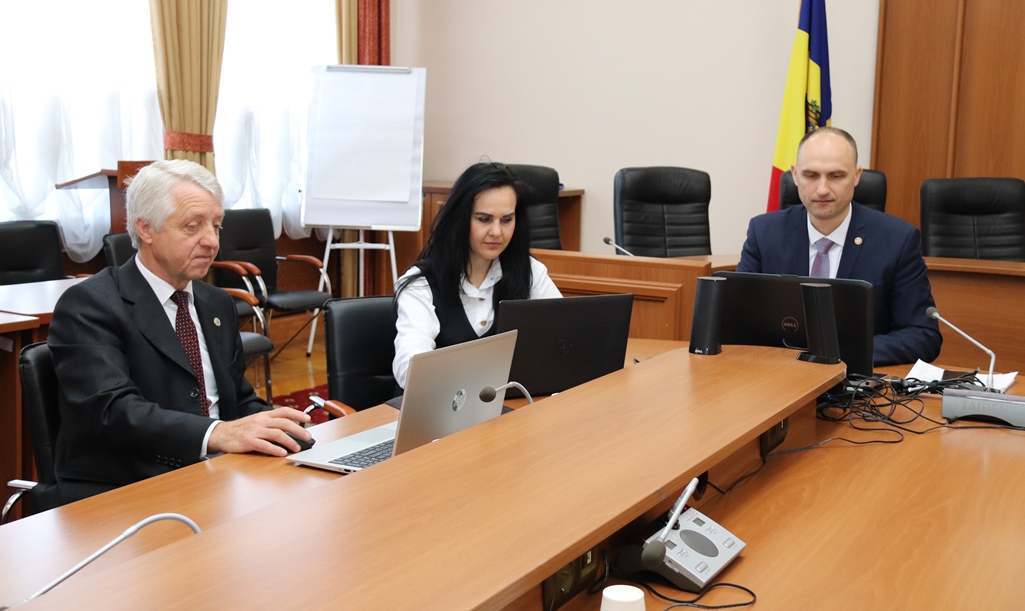
The Court of Accounts of the Republic of Moldova (CoARM) presented today, March 23, at the meeting of the Public Finance Control Committee (PFCC), the Report of the follow-up audit on assessing the level of implementation of the requirements and implementation of the recommendations submitted by the Decision of the Court of Accounts no.62 from 02.08.2018 “on the Performance Audit Report on the evidence of state information resources and systems”, approved by the CoA’s Decision no.81 from 24.12.2020 and the Performance Audit Report “How do the activities performed for the creation/elaboration, implementation and management of information systems in the public sector contribute to the efficient use of the resources allocated for this purpose?”, approved by CoA’s Decision no.82 from 28.12.2020.
Viorel Chetraru, Vice-President of the CoARM spoke about the main conclusions and findings of the performance and follow-up reports. Natalia Balaban-Uncu, Head of the audit team, reported on the objectives of the audit missions and the most significant deficiencies.
According to the data presented by the audited entities, as of November 2020, within the audited entities were implemented 939 computer systems and products amounting to over 1 billion lei, of which 24% are information systems of state importance, the cost of which exceeds 93% of the total expenses incurred in this respect.
The multiple shortcomings in terms of regulatory rules and procedures, as well as the development of information systems (IS) with the superficial application of the provisions of legislation in the field of information and communication technology (ICT), lack of necessary documentation systems and lack of institutional memory, with a detrimental impact on the sustainability and sustainability of systems, as well as on the efficient use of resources in this regard.
Thus, the audit verifications show that over 71% of the state IS do not have concepts and over 67% of them do not have Regulations adopted in the established manner.
The audit states that, although significant financial resources have been invested, including from external sources and credit, some IS are not fully operational and used properly. Thus, summarizing the results of the evaluations performed based on the selected sample, it is found that 18 IS financed from external sources amounting to over 68 million lei, at the time of the audit were not used, and the prospect of their subsequent use, according to the audit, is reduced.
We mention that the verification activity included the actions carried out, between 2018 and November 2020, by the entities referred to in the operative part of the Decision of the Court of Accounts (Ministry of Economy and Infrastructure, Ministry of Finance, State Chancellery, Electronic Government Agency, Information Technology Service and Cyber Security).
The results of the follow-up audit show that, although during 2018-2020 certain measures were taken to eliminate the shortcomings found by the previous audit, and certain results were recorded, they did not result in the expected impact. Thus, it is revealed that, out of a total of 17 audit requirements and recommendations submitted by the nominated Decision, to 7 entities, 5 requirements and recommendations were fully implemented, partially implemented - 9 requirements and recommendations, and 3 recommendations remained unimplemented.
Among the main causes that have generated a modest degree of implementation of the submitted audit requirements and recommendations are:
• the complexity of the field and the long process of legislation;
• the created context, conditioned by the reorganizations and redistribution of attributions at the level of public authorities and institutions;
• non-correlation of the institutional capacities of the entities with the additional tasks and attributions invested as a result of their reorganization, etc.
Finally, Mr. Chetraru concluded that, based on the audit findings, recommendations were submitted to ensure the remedy of the detected non-compliances, respectively, about the actions taken, the Court of Accounts will be informed within 6 months from the approval of the CoA’s Decisions.
 WITH DEFICIENCES OF VIEW
WITH DEFICIENCES OF VIEW Youtube
Youtube Facebook
Facebook


 print
print

.jpg)


